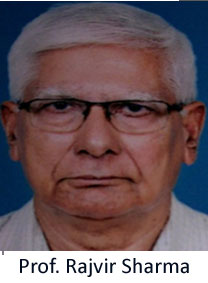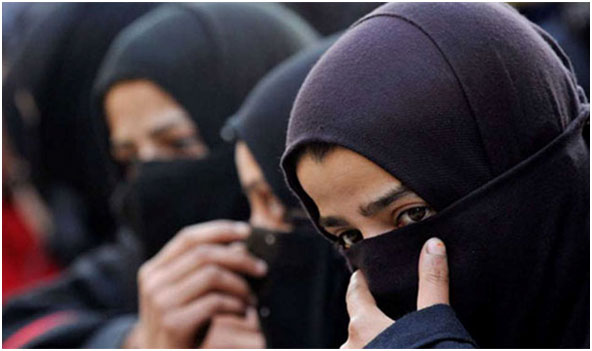
It was for quite some time that the judiciary has been insisting upon the Indian state to bring an end to the unjust, gender biased personal laws prevailing in different minority communities, especially in the Muslim society. The women in that community are leading the life of slaves to their menfolk; patriarchy in its worst form.
There is a complete domination of man over woman in all that is related to marriage, divorce, inheritance, maintenance or remarriage with the same man whom she was divorced from. Apart from the practice of triple talaq instantly, there are practices like polygamy, ‘halala’, inequality in inheriting the ancestral property etc. It is no secret that these practices, sanctioned by Shariat as they say, have made a Muslim woman either to surrender to the whims and fancies of their husbands or face the music of abandonment to be left to fend for herself. So she is from day one in the parental house to the husbands’ home made to live in a state of constant fear.
This fearsome life blocks her progress as a free human being to think, act and participate in the process of development of her body, mind and soul. She has to live in the in-laws’ house only if she is ready to mortgage her mind, dignity, honour and self-initiative to the men of the house. She cannot even question her husband if he decides to marry other woman.

Keeping these inhuman conditions imposed on Muslim women, the court, both the High courts and the Supreme Court, have underlined the need for enacting a uniform civil code in the country guaranteeing equal status, justice and freedom to all women without any regard to their caste, creed or community in several cases on the subject.
The Congress in the last several decades of their rule did not pay any attention to the saner advice of the court as it preferred politics over justice. It was afraid of losing the support of the fundamentalists/ conservatives among the Muslims and therefore refrained from introducing reforms in the Muslim personal laws. They instead chose to appease the fundamentalist in particular and the Muslim men generally in exchange of votes. This strategy succeeded to a large extent for most of the time to keep the party in power for the large part of time in independent India.
That was the reason that Rajiv Gandhi overturned the court judgment in the Shah Bano Case in 1986. The argument of the party has been in line with the Muslim fundamentalists that any interference by the state in their personal laws would be violation of their freedom of religion enshrined in the constitution. That they did not believe in this policy while passing the Hindu Code Bill is a different story.
This is not to argue that the reforms brought in the Hindu personal laws were out of place or undesirable. But the party forgot conveniently the same logic to undo the wrongs prevailing in the minority community. It was all because of the fear of diminishing political returns as a fall out.
The Bhartiya Janata Party made it a part of their written and verbal commitment to the Muslim women to enact a uniform civil code if voted to power. They coined a slogan to give expression to the promise -- Justice to all, appeasement of none. Now that the party is in power it has every right to translate its promise made to the nation, more so to the women. The injustice denied by Islam cannot be permitted to prevail in practice to the detriment of Muslim women’s interest.
The BJP Government therefore submitted an affidavit in the court supporting the end to triple talaq instantaneously. The court declared the practice of instant triple talaq as unlawful and expected the government also to come out with a law in that regard.
Accordingly, the BJP government introduced a bill on the subject providing for a three year jail for those who violated the law and the court prescription. The Congress found itself in a catch 22 situation. If it supported the bill they will lose the unstinted backing of the fundamentalists and therefore would suffer political risk and if they do not support the bill they would put a seal of accepting the accusation of following policy of appeasement of muslims and a votary of pseudo secularism. Being unable to select their path they fell prey to utter confusion at the top.
The result is all before us. The Congress made a mockery of itself when it supported the bill in the Lok Sabha but stalled it in the Rajya Sabha. If it was a matter of opposition on principle, it should have been opposed in the Lok Sabha too because there was not a change even of a comma in the body of the legislation when sent to the Rajya Sabha after it got approved from the lower House.
Undoubtedly, the party went by number game instead of ideology or it was again under pressure of Muslim fundamentalism that it decided to use the majority of the opposition in the upper House. It is also indicative that the opposition is not serious and pays a lip service to the cause of gender justice and women empowerment.
The party is slowly slipping into the Zone of a fringe brigade shedding its status of a mainstream party. The baggage of pseudo secularism is so heavy on its head that it cannot see beyond its nose, refusing to recognize the growing unease among the Muslim women of the 21st century against the injustice heaped upon them under the false cover of religion.
The regional parties are further uniting with Congress on the issue to further weaken it to ensure that it joins them as merely a marginal player in national politics. It is high time that Congress should revisit its appeasement policy and join BJP in passing the Bill into an Act in the Rajya Sabha. The Triple talaq prohibition will write a new history in the liberation of the presently helpless and hapless Muslim women. They also deserve a life equal to being enjoyed by any other citizen of the country. Alibis should be thrown aside to write a new chapter on – ‘Sarvey Bhavantu Sukhinah.’ Let us see!
(The writer is Senior Consultant, School of Social Sciences, IGNOU, New Delhi)
